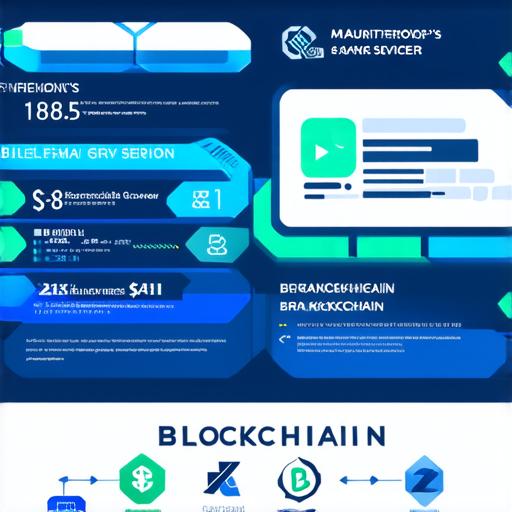Blockchain technology has been around for over a decade now and has gained significant traction in recent years, especially in the financial industry. It is a distributed ledger that allows for secure and transparent transactions without intermediaries.
Blockchain and Banking
One of the most significant impacts of blockchain technology is on banking. Blockchain can eliminate the need for intermediaries such as banks, making transactions faster and more secure. It also allows for peer-to-peer transactions, which means that individuals can transact directly with each other without the need for a third party.
Blockchain technology has already been implemented in some banks, such as JPMorgan Chase, which launched its own blockchain-based payment system called Quorum. This system allows for instant and secure payments between two parties without intermediaries.

Another example of blockchain in banking is the use of smart contracts. Smart contracts are self-executing contracts with the terms of the agreement directly written into lines of code. They can be programmed to automatically execute when certain conditions are met, making them ideal for financial transactions such as loan agreements and stock trades.
Blockchain and Cryptocurrency
Cryptocurrency is another area where blockchain technology has had a significant impact. Cryptocurrencies, such as Bitcoin and Ethereum, are decentralized digital currencies that use encryption techniques to secure their transactions and to control the creation of new units.
Blockchain technology allows for the creation of a transparent and secure ledger for cryptocurrency transactions. This means that all transactions are recorded on a public blockchain, making it easy to trace and verify the authenticity of the transaction.
Cryptocurrencies have also made it possible for individuals to transact directly with each other without intermediaries. This has opened up new possibilities for peer-to-peer transactions, such as online marketplaces and crowdfunding platforms.
Blockchain and Insurance
The insurance industry is another area where blockchain technology can have a significant impact. Blockchain can provide a secure and transparent ledger for insurance claims, making it easier to process and settle claims quickly and efficiently.
Smart contracts can also be used in the insurance industry to automate claims processing and settlement. This can help to reduce fraud and improve customer satisfaction by providing faster and more accurate claim processing.
Blockchain and Supply Chain Management
The supply chain industry is another area where blockchain technology can have a significant impact. Blockchain can provide a secure and transparent ledger for supply chain transactions, making it easier to track and verify the authenticity of goods and services.
Smart contracts can also be used in supply chain management to automate contract execution and payment processing. This can help to reduce fraud and improve efficiency by providing faster and more accurate transaction processing.
Blockchain and Identity Management
Identity management is a critical aspect of financial services, as it involves the verification of identity for transactions such as loans and investments. Blockchain technology can provide a secure and transparent ledger for identity management, making it easier to verify and manage identities.
Smart contracts can also be used in identity management to automate identity verification and management processes. This can help to reduce fraud and improve efficiency by providing faster and more accurate identity verification.
Case Studies
IBM’s Food Trust
IBM’s Food Trust is a blockchain-based system that was developed to improve the food supply chain industry. The system uses blockchain technology to provide a secure and transparent ledger for food transactions, making it easier to track and verify the authenticity of food products. This has helped to reduce food waste and improve customer satisfaction by providing faster and more accurate product tracking.
Deloitte’s Smart Contract Platform
Deloitte’s Smart Contract Platform is a blockchain-based system that was developed to automate contract execution and payment processing. The platform uses smart contracts to automatically execute contracts when certain conditions are met, making it easier to process and settle transactions quickly and efficiently.
